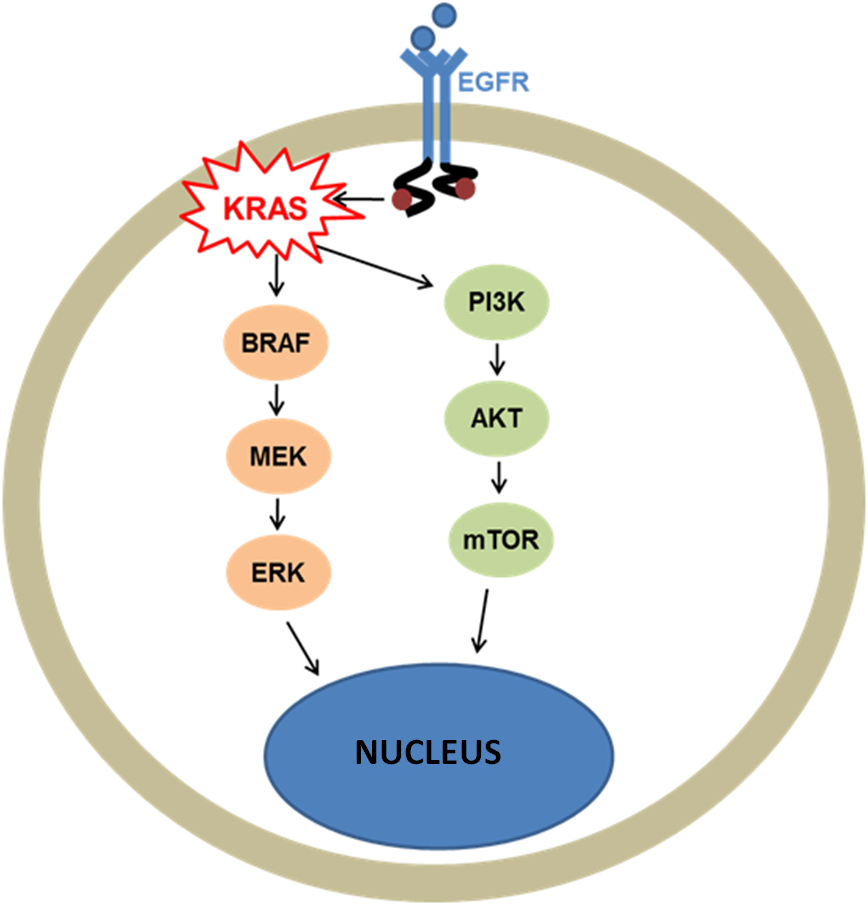At present, the most efficient therapy of colorectal cancer (CRC) and non-small cell lung cancer (NSCLC) targets the EGFR signalling pathway by inhibiting its different members. The proteins encoded by the RAS genes are key players in the EGFR signalling pathway, and the presence of activating mutations in them indicates a definite resistance to anti-EGFR therapies. KRAS mutations are the most common among RAS mutations; thus, routine screening of all CRC and NSCLC patients is recommended for this gene. If the KRAS and the NRAS genes are mutation-free, the anti-EGFR therapy can be efficient.

Analysis of the gene is recommended mainly in cases of colorectal cancer (CRC) and non-small cell lung cancer (NSCLC).

